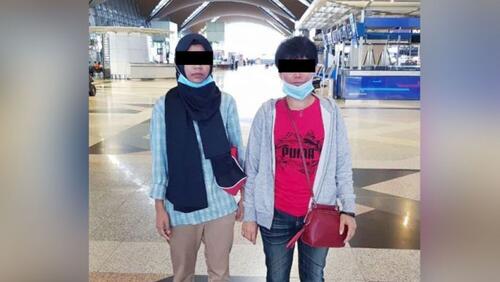Abuse of Cambodian Migrant Domestic Workers in Malaysia

Abuse of Cambodian Migrant Domestic Workers in Malaysia
Two Cambodian housemaids, Nguon Van and El Mary, who migrated to Malaysia for work were returned to the country after allegations of abuse, a trend which according to Human Rights Watch’s coverage must extend at least to 2011. Van migrated through a company in 2010, only to be denied the salary for her work. Mary illegally worked in Malaysia before running away because of overwork and physical abuse at the hands of her employer. The Phnom Penh Post attributes the return of these women to the actions of the Cambodian embassy in Malaysia and the actions of a Phnom Penh-based NGO called the Chab Dai Coalition.
These stories are not the first of their kind, as the Human Rights Watch covers in their own article about Nhon Yanna, a housemaid who similarly migrated to Malaysia for work under a contract which quickly landed her in a training center without contact with her family, which she originally planned to support through her work. She was also hit, overworked, and denied payment when she migrated to Malaysia and began work. After complaints from rights groups about how common these accounts were, a ban was enacted on Cambodian house workers being recruited and sent to Malaysia. However, despite this ban, Cambodian workers were still seen on flights to Malaysia.
The work is attractive to workers who are below the poverty line, and similarly attractive to the Cambodian government as a way to bring money into Cambodia from Malaysia, since many of the migrant workers use their income as a method of supporting their families back home. This gives the Cambodian government little incentive to take action which might slow the stream of migrant workers out and money in, except what is needed to avoid human rights violation allegations. The Phnom Penh Post’s coverage of the most recent incident mentions no difficulty for the Malay and Cambodian governments in addressing cases of abuses against these workers, but the Human Rights Watch paints a picture of much less cooperation. According to their article on the abuses of these domestic workers, the Cambodian embassies are far too understaffed to handle cases of abuse, and even agreements made in order to lift the ban on the export of domestic workers have not had adequate protections for workers who might suffer abuse.
Comments
Lexi,
It’s really interesting how you juxtapose the reporting in the Phnom Penh Post and HRW reports. It shows how the very act of reporting and interpreting gets folded into political matters. In addition to this, there are debates in the academic literature about how to represent the delicate balance between exploitation and individual agency for all the actors involved in labor migration. Some scholars point out that broad brush depictions of these issues paints everything as trafficking and exploitation (which is not good for some people legitimately trying to cross border for work), but without attending to example like the ones described in this post one risks ignoring real cases of abuse and painting an overly rosey picture like the PP Post has done. It is a complex topic worthy of further study.
Pages